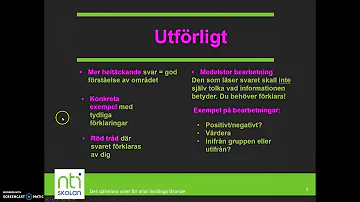Did the UK get a Brexit deal?
Innehållsförteckning
- Did the UK get a Brexit deal?
- What are the consequences of Brexit for the UK?
- Are UK citizens still EU citizens?
- Which EU agencies have left the UK?
- Who can live in UK after Brexit?
- Is the UK still part of the EEA?
- How will Brexit affect immigrants living in the UK?
- How has Brexit affected UK businesses?
- Is the UK still part of Europe 2020?
- Is the UK still in the European Council?

Did the UK get a Brexit deal?
After the Agreement was signed, the Government of the United Kingdom issued and deposited Britain's instrument of ratification of the Agreement on 29 January 2020. The Agreement was ratified by the Council of the European Union on 30 January 2020, following the consent of the European Parliament on 29 January 2020.
What are the consequences of Brexit for the UK?
According to a study by University of Cambridge economists, under a "hard Brexit" whereby the UK reverts to WTO rules, one-third of UK exports to the EU would be tariff-free, one-quarter would face high trade barriers and other exports risk tariffs in the range of 1–10%.
Are UK citizens still EU citizens?
Not permanently. The Withdrawal Agreement gives UK Citizens the right to live permanently only in the EU country of which they were legally resident as of 31 December 2020.
Which EU agencies have left the UK?
The two agencies currently based in the UK, the European Medicines Agency (EMA) and the European Banking Authority (EBA), have to be relocated in the context of the UK's withdrawal from the EU.
Who can live in UK after Brexit?
Applying for settled status after more than 5 years in the UK. If you have lived in the UK for more than 5 years, you can apply to the British government for settled status. This gives people the right to live and work in the UK. It also gives you the right to accrue state pension and to access public services.
Is the UK still part of the EEA?
The United Kingdom (UK) ceased to be a Contracting Party to the EEA Agreement after its withdrawal from the EU on 31 January 2020. This follows from the two-pillar structure and Article 126 of the EEA Agreement, which states that the EEA Agreement applies to the territory of the EU and the three EEA EFTA States.
How will Brexit affect immigrants living in the UK?
One impact of the post-Brexit immigration system is thus a shift in the type of immigration statuses that migrants living in the UK hold, and the accompanying restrictions. Many migrants will hold secure permanent statuses, including settled status for EU citizens. ... There will also be migrants with no legal status.
How has Brexit affected UK businesses?
It's argued that Brexit has had positive impact on UK businesses, by allowing them to trade more freely with non-EU markets. For example America and Australia. The UK is working to put in place new trade agreements with many non-EU countries around the world.
Is the UK still part of Europe 2020?
The UK left the EU at the end of 31 January 2020 CET (11 p.m. GMT). This began a transition period that ended on 31 December 2020 CET (11 p.m. GMT), during which the UK and EU negotiated their future relationship.
Is the UK still in the European Council?
The Council of Europe (CoE) is a pan-European organisation of 47 member states, including all 28 member states of the European Union. ... The Permanent Representation of the United Kingdom to the CoE is an active member of the organisation.















